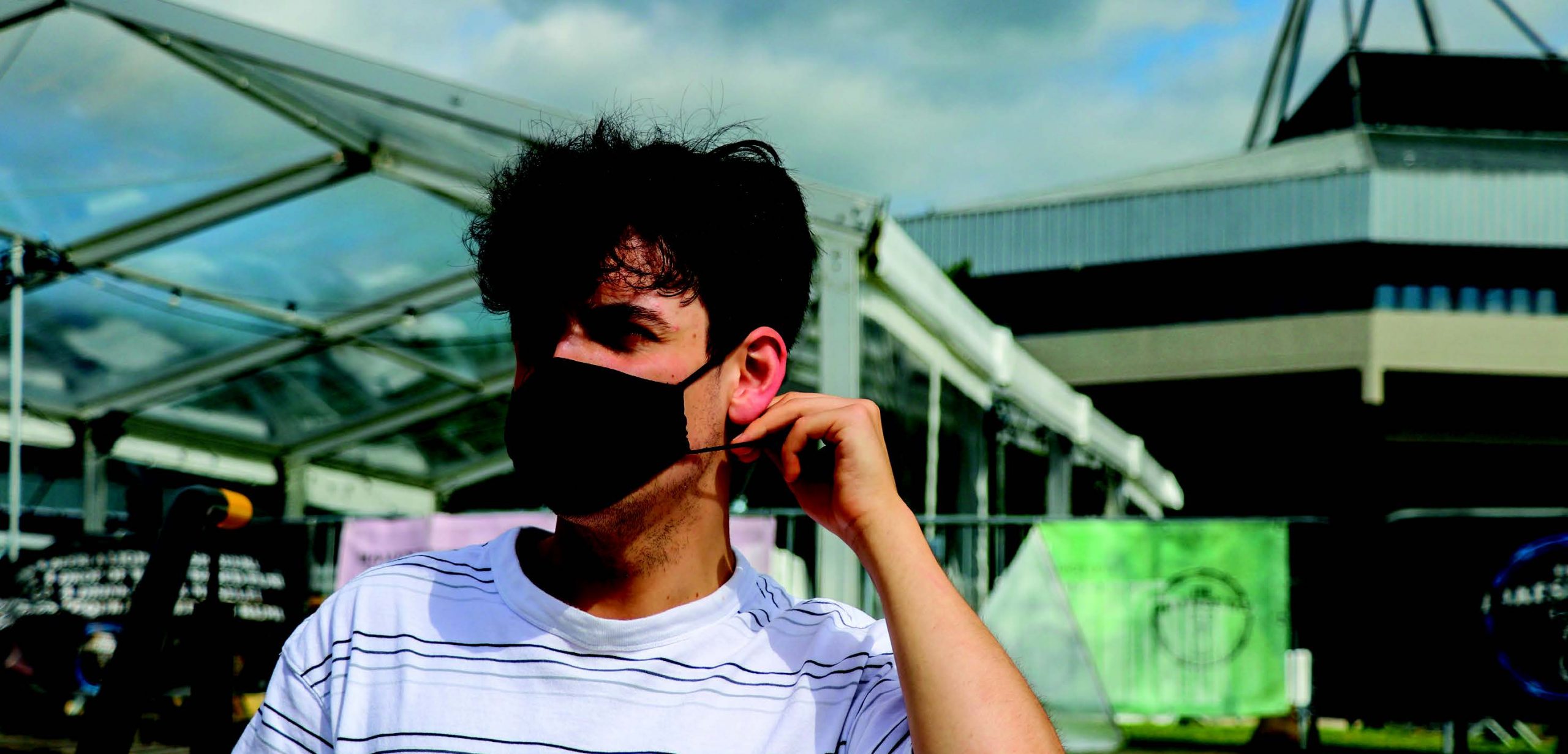Ever since York’s first COVID-19 cases last year, students have been at the centre of our city’s debates
on the pandemic.
Some have feared a divide opening between students and other York residents, with students often facing the blame for rising infections. York Vision met up with Sharon Stoltz, Director of Public Health in the City of York, to discuss the role students can play in York’s recovery, and the lessons that this year has taught us.
In September, when cases rose sharply, some saw the return of students as the cause. Stoltz reflected and said that “it’s a reasonable assumption to say that students returning to university into the city played a part, but they weren’t wholly responsible for that increase in cases.
“If we think back to what was happening at that time, we had the ‘Eat Out to Eat Out’ scheme, and restrictions were lifted.
“I think people let their guard down, and even though the data showed that there was an increase in cases in younger age groups, not everyone in that age group is a student.”
When asked to respond to the criticisms of students from some in the city, Stoltz said that “I think we will always have certain sections in any community that will look for simple explanations for why case rates rise”.
“There are vocal minorities in every university city who will have a moan, have a go at students, but that isn’t the majority view across York.
The majority of York residents actually welcome students and understand the valuable contribution that students make not not just to the economy in York, but to the fabric of the city.”
When asked about that Autumn rise in cases, Stoltz told us that “even though I expected that there would be an increase in infection rates when students returned, which was witnessed in other university cities as well, no one could have predicted the rapid sudden rise that we saw at that time.”
Through that challenging period, Stoltz said that the way the city and universities responded was a “silver lining” and helped the city control rising cases before other areas saw a similar surge.
“It led to a partnership approach between the public health team and both universities that has grown and strengthened over time.
“I’m not sure that would have happened as quickly if we hadn’t seen that spike in cases.”
Part of that partnership has seen students on the frontline of the city’s response, with over 150 students across York’s universities volunteering to support asymptomatic testing. Stoltz told us that “we couldn’t run our testing sites without the support of students”.
“It’s been amazing that so many students have come forward, have been trained and are doing an invaluable job helping our testing sites.”
We moved on to speak about the vaccine rollout, with more students becoming eligible to get their first dose. Stoltz urged students to register with a GP wherever they are living, to make sure that they do not miss out on a vaccine, but said that anybody who is concerned they have missed out on a vaccine they are eligible for could contact York’s public health team.
We asked what she would say to someone who was hesitant to get vaccinated, because of the relatively lower risk of Covid-19 to younger people.
Stoltz said that “one of the points of vaccination is to try and get to the point where we can have herd immunity. So we have the maximum proportion of the population vaccinated, so that we reduce the number of hosts that the virus can infect.
“But also, we are increasingly concerned about what’s called long Covid, where even young people who have not been particularly ill with Covid-19, have not needed hospital admission, but are left with ongoing problems.
“There are cases of young people that, months after what might have been a mild infection, still have various symptoms, including ones that might impact on their quality of life.
There’s no way of knowing whether you’re going to be one of the lucky ones and just perhaps have no symptoms at all, or you may have very mild symptoms and throw the infection off very quickly, or you’re going to be one of those people that’s going to be affected by long Covid.”
Testing, particularly asymptomatic lateral flow testing, has become a part of student life for many, but Stoltz said she would not support mandatory testing.
“I am not a fan of making things mandatory – even vaccination is not mandatory. That’s not the way that we do things in this country.
“We operate on a system of informed consent and we do everything possible to ensure that people have access to good information, so that they’re making an informed decision of whether they take up a vaccination, or whether they take up a lateral flow test.
“I would 100% strongly encourage people to be tested [but] there has to be individual choice.”
Looking to the future, as York begins to reopen, Stoltz expressed her expectation that “life will start to get more normal as we head into the summer.”
“The only caveat around that is that the virus is still with us. So people just have to be sensible, including wearing a face covering and washing your hands or sanitising them regularly.
“Just being mindful of protecting yourself by doing those simple measures, just common sense really.
“And so things will go back to normal, and then students will be able to participate in all of those things.
“Residents wouldn’t want students to feel that they’re locked up on the campus and they can’t come into the city, it’s just about using common sense and being sensible.”
The city has come a long way since March 2020 and students have played their part all along the way. With the potential ending of legal restrictions in sight, students can, and will continue to fulfil their role.
